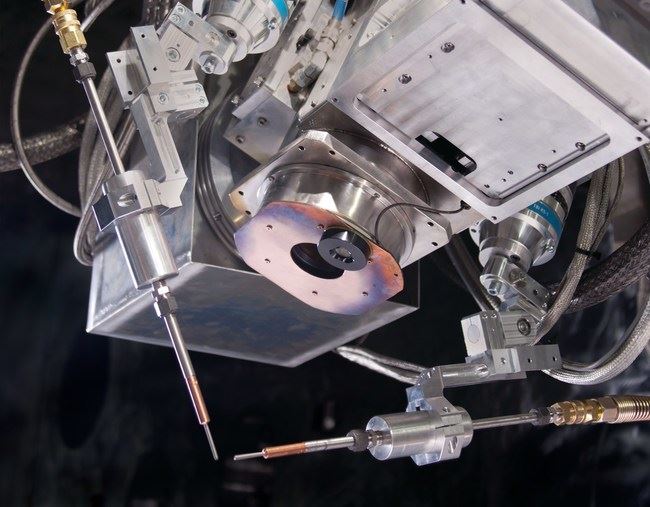![[Image: Sciaky]](https://fabbaloo.com/wp-content/uploads/2020/05/Sciaky_Dual_Wirefeed_img_5eb09b101e8c0.jpg)
Metal additive manufacturing company Sciaky has joined ADAPT.
ADAPT, the Alliance for the Development of Additive Processing Technologies, was born from the Colorado School of Mines (and not to be confused with another ADAPT industry-academia consortium). The tag line is “Optimize for Additive.”
The organization says:
“By leveraging the latest developments in materials characterization and machine learning, ADAPT members have unique opportunities to compete more effectively to become global AM leaders.”
Sciaky, with its focus in electron beam additive manufacturing (EBAM), has been on our radar for some time as the company looks to expand use of its technology. Joining ADAPT is a step forward for the company in raising awareness and, hopefully, increasing adoption.
A major part of the industry-academia collaborative approach is in enhancing understanding of just what additive manufacturing can offer and how those offerings can be realistically applied. Getting thinkers and doers together, as it were.
Of this partnership, the announcement notes:
“A barrier to AM process qualification that ADAPT is excited to work on, in collaboration with Sciaky, is the lack of fundamental understanding about how the process variables effect (sic) material microstructure and final part properties.”
ADAPT’s focus for optimizing additive encompasses processes, materials, and parts. Keying in on process variables with Sciaky adds another layer to that aspect.
Sciaky’s EBAM systems are scalable, creating parts for a variety of industries requiring metal parts. Builds on these systems can be 8” long or 19’ long, and anywhere in between, working at quick speeds (up to 25 pounds of metal deposited per hour). Importantly, the company has also committed to quality in its process, with its Interlayer Real-time Imaging and Sensing System (IRISS) introduced in 2016 for adaptive closed-loop control during the build process.
ADAPT has been working with partners including Lockheed Martin (an ADAPT founding member) in a program designed to develop “real-time sensing and feedback control strategies that will improve process reliability and consistency, leading to higher quality and the ability to certify additive parts.” The four-year Office of Naval Research program underscores the organization’s existing dedication to this process aspect of its mission — and shows a neat fit for the work ahead with Sciaky.
The consortium has been growing steadily since its founding in late 2015. From six founding members, ADAPT now reports 23 current members and 11 non-member research partners.











